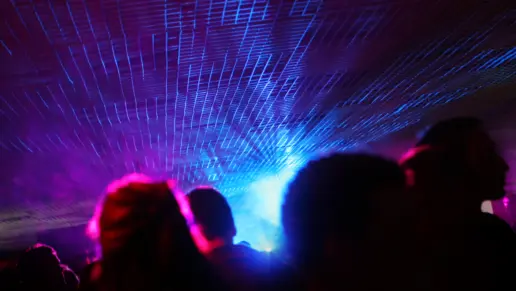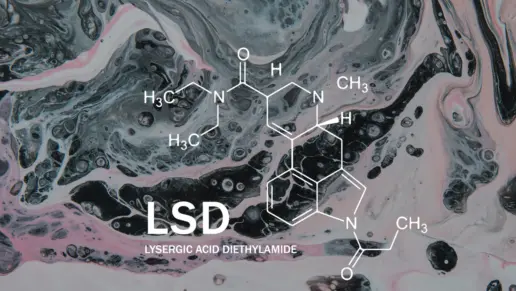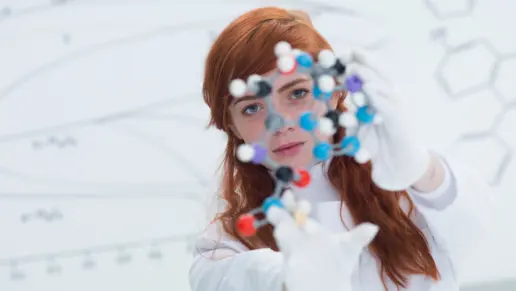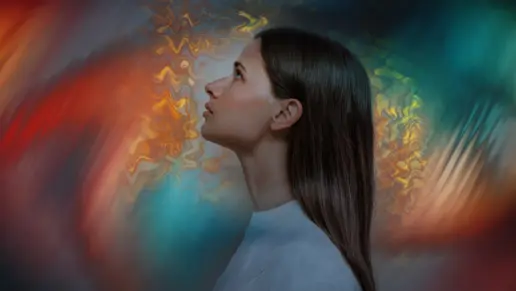What is Psilocybin?
Psilocybin is an organic compound found in several types of fungi or mushrooms. These mushrooms are commonly found in North America. Users typically eat these mushrooms in dried or powdered form. They’re considered a serotonergic psychedelic with strong hallucinogenic effects when taken.
The use of psilocybin for religious and social ceremonies dates back centuries among indigenous populations. The use of psilocybin became popular in the 1960s among the counterculture movement in the United States and was made illegal in 1968.
In 1970, psilocybin was labeled a hallucinogenic under The Controlled Substances Act and was listed as a Schedule l drug. This meant it had a high potential for abuse and served no legitimate medical purpose.
According to a 2023 study, 25 states have considered bills to reform existing laws restricting the use and possession of psilocybin. The same study noted that researchers should consider the benefits of psilocybin, especially in treating severe depression and other mental health conditions.
Decriminalizing and rescheduling psilocybin to a less restricted classification can allow researchers and healthcare professionals to better understand its use and therapeutic value.
Difference between Psychedelics and Hallucinogens
The terms psychedelic and hallucinogen are used often interchangeably, but they aren’t the same. Hallucinogen refers to three subgroups of drugs: psychedelic, dissociative, and other non-classified drugs that cause psychedelic effects. Psilocybin belongs to the psychedelic drug class.
Psilocybin interferes with the way our brains process the neurotransmitter serotonin, which changes a person’s perception of reality. Many people under the influence see, hear, and feel things that aren’t happening in real life. These alterations are often referred to as “trips.”
Psilocybin FAQs
What is Psilocybin Cubensis?
Psilocybin cubensis is commonly referred to as magic mushrooms, shrooms, golden halo, golden teacher, or gold cap. They’re a species of the psilocybin mushroom that belongs to the Hymenogastraceae family. These mushrooms can be ingested raw or dried and preserved.
Many people regard psilocybin as safe for consumption. But its use can have serious risks. Adverse reactions include aggressive or violent behavior or self-harm that put individuals in dangerous situations.
Psilocybin is also associated with a condition called hallucinogenic persisting perception disorder (HPPD). Individuals suffering from HPPD have sudden flashbacks from previous “trips” that impair an individual’s ability to function as usual.
Can Psilocybin Cure Depression?
Researchers are looking at psilocybin’s role in treating depression, anxiety, and other mental health conditions. However, widespread use and study of the psychedelic drug are greatly regulated due to their status as a Schedule l drug in the U.S. Schedule of Controlled Drugs.
Research on psychedelic drugs, including psilocybin, in the early 1990s found promising evidence of its benefits.
Researchers determined that psilocybin led to positive results when treating major depression under strict supervision and could address obsessive compulsive disorder and alcohol and tobacco misuse.
When researchers examined results from studies conducted between 1949 and 1973, they found that 79% of participants showed “clinically judged improvement” post treatment.
Another study found that the use of psilocybin for depression resulted in a rapid and enduring decrease in symptoms among participants.
Since this study, the United States Food and Drug Administration has designated psilocybin as a form of Breakthrough Therapy for its potential medical treatment for depression.
This designation allows for an expedited process of development and review after psilocybin demonstrated substantial improvement over available therapy in clinical studies.
Further research is needed to better understand the impact psilocybin hallucinogenic mushrooms have on certain mental health conditions, including depression.
However, for some patients, microdosing psilocybin under robust medical supervision may offer demonstrable symptom relief for some treatment-resistant conditions.
How Long Does Psilocybin Stay in Your System?
Our bodies process psilocybin quickly. For most people, about 75% of it is excreted within six hours. After 24 hours, it’s normally no longer detectable in urine but may be detectable in hair follicle testing for as long as 90 days.
Factors that may impact excretion times include potency and the type of mushroom ingested, tolerance, preparation method, ingestion method, digestion of other food or drink, metabolism, and kidney function.
Are Magic Mushrooms Psychedelic or Hallucinogenic?
Magic mushrooms are considered to be both because the terms, “psychedelic” and “hallucinogenic,” are used interchangeably. Psilocybin is specifically classified in the hallucinogenic subclass and is defined as a psychedelic.
They cause changes to an individual’s perception of reality. The effects of psilocybin can range from heightened sensory awareness to horrible hallucinations and panic attacks.
Is Psilocybin Addictive?
Psilocybin magic mushrooms don’t contain the same addictive properties that some opioid or stimulant drugs have. But they can cause psychological dependence in some people.
A psychological dependence refers to a condition where an individual believes they need the substance to function properly. They develop strong emotional cravings for the substance, lose interest in their usual activities, fail to fulfill obligations at work and home, and spend time using or thinking about the substance.
That’s not to say that a psychological dependency is safer than a physical one. Extreme symptoms of psychological dependence can cause severe anxiety and self-harm that can lead to suicide.
Are Psilocybin Mushrooms Legal?
Like other hallucinogenics, psilocybin mushrooms are illegal in most states and under federal law. But Oregon, Colorado, and the District of Columbia have recently loosened laws surrounding the drug within their borders.
Proponents have lobbied state and federal governments to reclassify the drug to allow more research of its benefits and drawbacks.
In addition, in some areas, psilocybin spores, which are used to grow psilocybin magic mushrooms, are available to purchase and cultivate legally. It’s important to research the laws in your state and municipality before acquiring psilocybin in any form.
How Long Do Psilocybin Mushrooms Last?
Psilocybin mushrooms have a short shelf life. The safety and potency of these mushrooms are lessened over time by changes in light, moisture, and temperature.
Fresh mushrooms last for only a few days even under the best conditions. Microdose capsules and extracts in liquid or powder are good for 1-2 years. Dried mushrooms can last for months or years if stored correctly.
Spoiled mushrooms can develop harmful qualities and should never be used. Mushrooms that have gone bad can cause symptoms such as nausea and vomiting. Expired mushrooms can develop mold growth and lead to allergic reactions and respiratory issues.
If they’re contaminated by Salmonella or E. coli, individuals may develop serious infections. Spoiled mushrooms also lose their potency.
Psilocybin Therapy for Depression
Psychedelic-assisted psychotherapy typically uses certain psychedelic drugs for the treatment of severe depression. This includes psilocybin, lysergic acid diethylamide, MDMA, and ketamine.
Psilocybin treatment providers offer a range of therapeutic options. Single dose treatments using psilocybin may be administered in an office or in your own home under medical supervision. Monitoring your response to your first psilocybin your treatment provider to determine whether the treatment is right for you.
Early studies suggest that participants had positive results when psilocybin is used in conjunction with talk therapy facilitated by a trained doctor.
One study conducted in 2022 by Johns Hopkins Medicine found that most participants obtained relief from their severe depression symptoms after two doses of a psychedelic compound, including psilocybin, for 12 months.
The use of psychedelic drugs like psilocybin is showing promising results in the treatment of depression and other mental health conditions. However, further studies are needed to determine its effectiveness and safety to fully understand the long term impact of its use before this type of treatment becomes widely available.
Psilocybin Therapy Providers and Treatment Resources
Treatment for psilocybin abuse doesn’t generally require medical detox due to the low probability of physical dependency. But some individuals suffer from psychological dependence that requires professional substance use treatment.
For individuals who have moderate to severe dependence, inpatient treatment is beneficial. During inpatient treatment, individuals participate in individual and group counseling that include cognitive behavioral therapy (CBT).
They may also receive medications such as selective serotonin reuptake inhibitors to help regulate mood, sleep, and emotion. There are also holistic options such as massages, acupuncture, mindfulness practices, and yoga.
For individuals with less severe psychological dependence, outpatient treatment may include talk therapies such as CBT, motivational interviewing (MI), and peer support.
Remember that using hallucinogens can possibly trigger or worsen certain mental health conditions like manic episodes and schizophrenia.
Recognizing underlying mental health conditions and any polysubstance abuse should be taken into consideration when creating individual treatment plans for each individual.
Featured Facilities Near You
Finding facilities near you…





